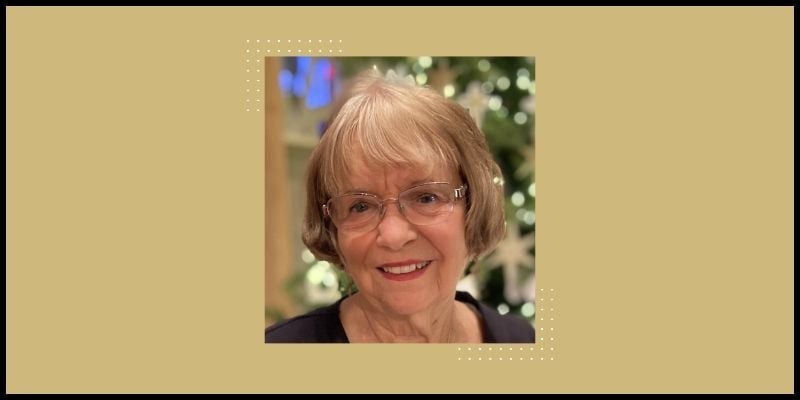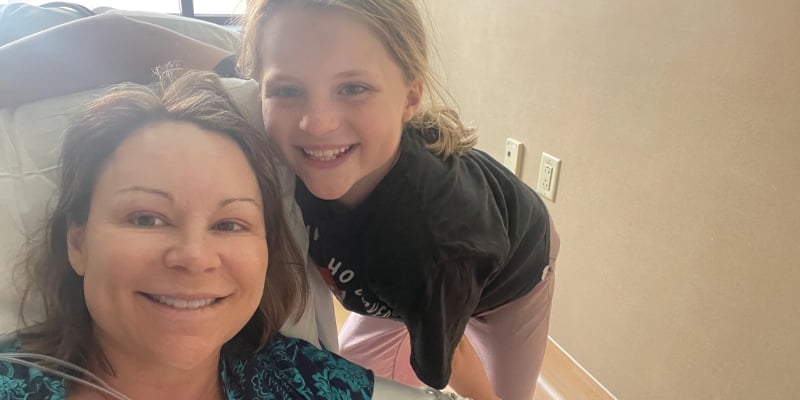“I knew at a young age that I wanted to be a doctor or a person who could help others heal,” says CU Nursing alumna Michelle Kahn-John, PhD ‘14, MSN ’00, who comes from a long line of medicine women and men from the Navajo (Diné) Nation, Big Water Clan (Tó’tsohnii) of Fort Defiance, AZ.
Aligning these two major influences in her life – Western medicine with Native American Indian healing methods and traditional beliefs – proved to be an interesting path to walk. One that Kahn-John has maneuvered through gracefully, blending the two perspectives.
After earning her ADN in 1995, followed by her BSN in 1996 from the University of New Mexico, she has moved through both worlds – incorporating many Navajo beliefs to help her patients while enlightening her practice and research. Currently, she is a research fellow with the Johns Hopkins School of Nursing and continues practicing as a psychiatric mental health nurse practitioner.
Differing World Views with the Same Goal
AACN Watch: Native American and Indigenous Nurses |
|
Recently, Kahn-John -- along with 12 other Indigenous nurses -- was highlighted in AACN Watch as Native American and Indigenous Nurses to know who have influenced healthcare. She is a practicing nurse practitioner and has been the principal investigator of million-dollar, multiyear grants from HRSA and Indian Health Services, and serves on a team led by Teresa Brockie, PhD, to prevent Native American youth suicide. She earned her ADN and BSN from the University of New Mexico, and her MSN and PhD from CU College of Nursing. |
“The two have different world views. My culture places less emphasis on the individual and more on our inter-relatedness with the world and universe. Western medicine is primarily disease-focused – looking for what’s wrong,” says Dr. Kahn-John.
According to Kahn-John, “Both have the same goal – to improve health and well-being – we just differ in how we get there.”
While Western medicine looks at health and wellness from a deficit perspective, the Navajo focus on re-establishing health, wellness, and balance from a place of strength, beauty, and hope. “When I’m healthy, my family is healthy, as is my environment. The Diné worldview recognizes the many dimensions of health including the body, mind, spirit, environment and extended family and community. My environment, family, teachings, and culture are extensions of me and reflect my health and wellbeing,” explains Kahn-John. The Diné perspective on achieving health is complex and requires extensive knowledge and alignment with Nature, animals, plants, the Four Directions, Mother Earth, Father Sky, water, air, fire, and familiarity with cycles of nature (day, night, seasons, moon).
For hundreds of years, Native American healing practices were ridiculed, and condemned in the US. “These traditional knowledge systems and practices are sacred and protected by Native communities. Native wisdom keepers may consider it inappropriate to research outcomes of sacred ceremonial healing practices.” In her work, Kahn-John prioritizes Native sovereignty, cultural safety, and respect as she carefully explores outcomes of Native healing interventions and expands access to traditional healing for her community.
Nursing Helps Bridge the Gap
Today, we are recognizing the unique insights Indigenous cultures bring to medical practice. Kahn-John believes that there are multiple paths to healing and wellness, and it is our responsibility to expand our knowledge by recognizing the diverse health needs and existing health systems available for the people we serve.
It may seem counterintuitive to integrate traditional healing practices with Western medicine, but Kahn-John says that nursing looks at a person holistically and is positioned well to assist in achieving culturally safe integrative practice. A central premise in nursing is patient-centered care, a caring process which recognizes how spiritual, mental, and emotional well-being have a bearing on a person’s overall health. Kahn-John’s work aligns nicely with the holistic perspective of Caring Science, a respected theory in nursing developed by CU Nursing alum, Dean Emerita, and Living Legend Jean Watson, PhD, whom Kahn-John met and worked with when attending CU’s MSN program.
“We’re not 100% there yet – integrating the two perspectives – we have much work to do but we are getting there. There is growing interest, greater knowledge development, and the emergence of an open and respectful incorporation of Indigenous healing methods into practice. And that’s a good thing,” says Kahn-John.
Photo Credit: Valonia Hardy


